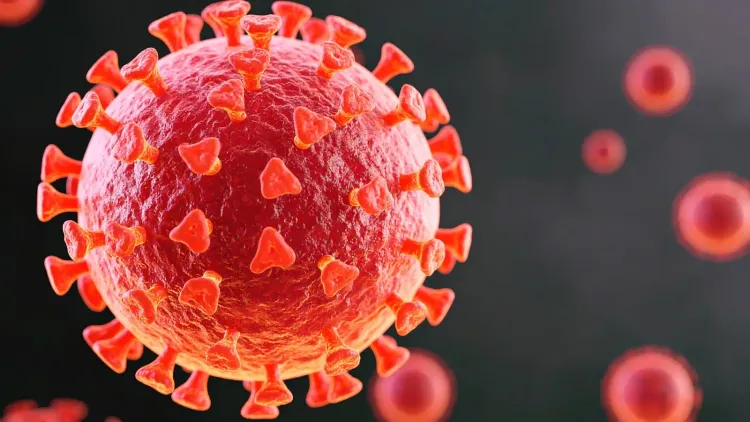Could a Drug for Coeliac Disease Aid in Treating Severe Post-Covid Syndrome in Children?

Synopsis
Key Takeaways
- Larazotide shows promise for children with severe post-Covid syndrome.
- Current treatments for MIS-C are limited and often ineffective.
- The study indicates that larazotide is safe and effective in resolving symptoms.
- Ongoing trials will explore its use for long Covid.
- This research highlights the need for innovative treatments in pediatric healthcare.
New Delhi, July 31 (NationPress) A medication originally developed for coeliac disease—an autoimmune condition that primarily impacts the small intestine—has shown potential benefits for children suffering from severe post-Covid syndrome, as indicated by preliminary research.
Although Covid infection is uncommon among children, it can lead to a serious condition known as multisystem inflammatory syndrome in children (MIS-C), characterized by high fevers, gastrointestinal issues, and potentially life-threatening cardiac damage.
The findings from this small trial, published in the journal Science Translational Medicine, revealed that larazotide helped children return to their normal activities more swiftly after Covid.
“Although our study is limited in size, its outcomes are significant and may have broader implications for both MIS-C and possibly long Covid,” stated lead author Lael Yonker, co-director of the Cystic Fibrosis Center at Mass General Brigham.
“Our results indicate that larazotide is safe and leads to a quick resolution of symptoms in children with MIS-C. We are currently conducting a clinical trial to explore whether larazotide could also be an effective treatment for those suffering from long Covid,” Yonker added.
Currently, treatment options for MIS-C are limited. Some patients are administered general anti-inflammatory medications, but many experience a recurrence of symptoms after completing their course. These medications do not target the persistent SARS-CoV-2 viral particles that may linger in the gut.
Conversely, larazotide is taken orally and is designed to focus on the gut, reinforcing intestinal barriers to minimize the entry of materials—such as SARS-CoV-2 viral particles—into the bloodstream.
To assess the safety and efficacy of larazotide as a treatment for MIS-C, researchers performed a double-blind clinical trial involving 12 children diagnosed with early-stage MIS-C.
Participants were randomly assigned to receive either a placebo or larazotide four times a day for 21 days, followed by a six-month tracking period for recovery.
Children who received larazotide exhibited a quicker resolution of gastrointestinal symptoms, a faster clearance of SARS-CoV-2 viral particles, and a more rapid return to their usual activities, according to the research team.









